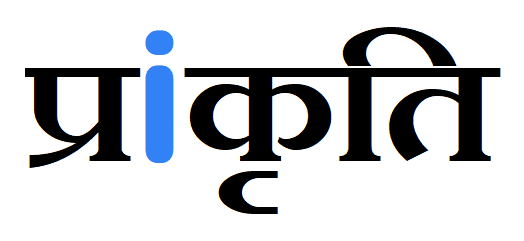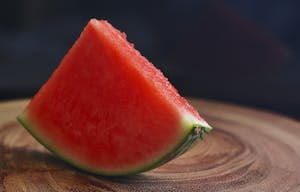Intermittent Fasting 101-Its Benefits, Side Effects,Diet Plan
Intermittent fasting is becoming very popular nowadays. People are losing weight through this. In this, you eat normal food 5 days a week. So on the same day two days of the week consume less calories and fluids. According to a study, people are very fond of Intermittent Fasting. So let’s go about intermittent fasting.
What Is Intermittent Fasting?

Intermittent fasting is a type of fasting. There is no special diet in intermittent fasting, but there is a special type of eating pattern. This mainly happens in two ways. In the first type of fasting, you eat something only during 6-8 hours. This means that you do not eat anything for 16 to 18 hours a day.In the second plan, you eat breakfast, lunch and dinner, but only 5 days a week. Then in week 2 you don’t eat anything. In this way you reduce 500 calories in a day. However, you can also drink non-caloric drinks like water, sugar-free lemon juice, green tea, etc. during your fast. It is also called time rest feeding.
How and When To Do Intermittent Fasting?
When this fasting, it is most important that you do not eat anything for a long time. When you are hungry for a long time, you lose weight quickly. To start, set a limit of eight hours. Limit your food intake to just eight hours. If seen according to the time, then the best time to do Intermittent Fasting is from 8 pm to 12 noon. Because you are sleeping in it for a long time. In the remaining time, you can plan your diet.
Apart from this, others prefer to eat between 9 am and 5 pm, who have a healthy breakfast around 9 am. One can have a normal lunch in the afternoon and a light snack around 4 in the evening. Apart from this, you can keep fast as per your convenience.
How to do Intermittent Fasting?
( Intermittent Fasting )
After knowing the meaning of intermittent fasting, the next question comes, how to do intermittent fasting or how to do intermittent fasting. Let us tell you that there are many types of intermittent fasting, out of which you can choose any fasting pattern.
Types Of Intermittent Fasting
- 12 hour fasting
In this, one has to be hungry for 12 hours of the day, while food is eaten only in the remaining 12 hours. This eating pattern is considered good for beginners, you can start intermittent fasting from it.
- 14 hour fasting
In this, one has to be hungry for 14 hours of the day and food is eaten only in the remaining 10 hours. This eating pattern is considered best for staying fit.
- Alternate day fasting
In this, fasting is done on the next day (full day) except one day, this fasting routine should be done only with the advice of a doctor or a dietician. Some experts do not consider it good for health.
- 16 hour fasting
16:18 Intermittent fasting is considered the best and most effective. In this, the fasting period is 16 hours and the eating period is of 8 hours. Fasting for 16 hours (16 hours fasting ) is the most popular way to reduce obesity and most people follow this diet pattern.
- 24 hour fasting
In this fasting pattern, you have to be hungry for 24 hours, like if you have dinner at 7 pm, then you have to be fasting from 7 pm to 7 pm the next day. This can be done 2-3 times in a week.
- 5:2 Fasting
In 5:2 fasting, you have to eat 5 days a week and take only 500-600 calories for the remaining 2 days. For example, suppose that you had a normal meal from Monday to Friday, as you have been doing till now and you take 2000 calories in a day.
Then you only have to take 500-600 calories from your meal on Saturday and Sunday, you can take two miles of 250-250 or 300-300 calories.
- Warrior Diet
The Warrior Diet consists of eating fruits and salads throughout the day and having a full meal at dinner. Some people have also benefited a lot from this diet plan. Ori Hofmekler is credited with inventing the Warrior Diet, he has also written a book on it.
How Long You Should Do Intermittent Fasting?

Whenever you eat, it is said that you should eat food that maintains blood sugar level and also controls appetite. Therefore, whenever you do an intermittent diet, keep in mind that you have to eat only healthy things. Also, include healthy foods in your intermittent diet. You should include only nutrients in your diet in the beginning. So that you can eat the things you want to eat later.
By the way, it is a bit difficult to do Intermittent Fasting. But you can make it easy by making a diet plan. Coconut water can be consumed in order that there is no shortage of water in the body during the day. Do not consume cold drinks and other beverages available in the market. If you want to do a weekly plan of Intermittent Fasting, then eat normal food for 5 days of the week, and consume less calories and fluids for the remaining two days.
Intermittent Fasting Diet
- Vegetables: Broccoli, Cauliflower, Cucumber, Leafy Vegetables, Tomato etc.
- Fruits: Apples, bananas, berries, oranges, peaches, pears, etc.
- Fat or Fat: Olive oil, avocado and coconut oil etc.
- Whole grains: quinoa, rice, oats, barley, etc.
- Protein: Meat, chicken, fish, legumes, eggs, nuts, seeds, etc.
Intermittent fastening is divided into two parts, the first part is of fastening and the second part is of eating. Know more about what to eat and what not to eat during fasting and eating period.
What to eat during fasting?
In 16 hours fasting (16 hours fasting), you do not have to eat anything during the fasting period, you can only drink water. 16 8 In intermittent fasting you may have some difficulty in the beginning but within a few days your body will get used to it.
Don’t even eat these things
- Tea
- coffee
- Milk
- Fruit Juice
What can you eat
- Water
- Green tea
- Black coffee
What to eat after intermittent fasting?
intermittent fasting diet: After fasting you should first eat fruits or lightly boiled green vegetables. Very heavy food should be avoided immediately after fasting.
After one hour you can take your normal diet. Since you have 8 hours to eat, you should take 2 miles in these 8 hours. Also you can take a short mile in between.
You can eat all these things
- green vegetables
- Lentils
- white meat
- fish
- egg white
- flour tortilla
- rice
- Curd
- fruit juice
What not to eat
- fried things
- fast foods
- flour products
- sweet things
Benefits Of Intermittent Fasting
- Studies show that fasting reduces the level of insulin in the blood, which leads to weight loss.
- Intermittent diet fasting can also reduce the risk of type-2 diabetes and other obesity-related risks.
- This strengthens the metabolism.
- By doing this the risk of cancer is reduced.
- It is very helpful in reducing body fat.
- Improves Digestion.
Intermittent Fasting For Weight Loss
# The biggest advantage of intermittent fasting is that it can reduce body weight rapidly. How to reduce weight by doing intermittent fasting, we will understand it with the help of some points.
# By doing intermittent fasting, the digestive system gets rest for some time, due to which the digestive system becomes stronger and functions better. Due to the strengthening of the digestive system, the digestion of food happens quickly and well, as well as the nutrients obtained from the food start getting to the body, which helps in reducing weight.
# Intermittent fasting also boosts the body’s metabolism, it is also very important for the metabolism to function properly to reduce weight.
# By doing intermittent fasting, you avoid taking extra calories and eating junk food, which is helpful in reducing weight.
# Human Growth Hormone (HGH) increases slightly due to intermittent fasting, Human Growth Hormone is helpful in repairing muscles and their growth. In addition, this hormone is also helpful in boosting metabolism and reducing weight.
# The benefits of intermittent fasting for weight loss are excellent, people who cannot go to the gym or who do not like to exercise, they can reduce their weight sitting at home with the help of intermittent fasting.
Side Effects Of Intermittent Fasting

# Due to the restriction of consuming food for only eight hours every day, people tend to overeat. That is to say, there is an illusion in the minds of people that we can eat as much as we want in eight hours. Shouldn’t do that. We should eat as much as we are hungry in eight hours.
# If we eat unhealthy food during the eight hours of eating, then it can lead to digestive problems. Apart from this, our weight can also increase.
# When you start the 16/8 Intermittent Fasting Diet, you may initially feel hungry, weak and tired.
# This is a new experience for your body so it may take some time for the body to understand it. The side effects of intermittent fasting can be as follows.
# In intermittent fasting, you have to stay in fasting for 12 -16 hours a day, due to which there may be weakness in the body, headache or dizziness. This can happen in the initial days of fasting. After fasting for one to two weeks, the body will become accustomed to it, then you will not have to face such problems.
# Intermittent fasting involves being hungry for most of the day, due to which your temperament can change and irritability can increase. This can happen in the initial days of fasting.
# After fasting, there is a very strong appetite, due to which many people take a lot of food at a time. Due to which their weight does not reduce at all, such people again often complain that we did not get any benefit from intermittent fasting.
# It has been seen that the benefits of intermittent fasting are seen very fast in the beginning. But as time goes on, its effect also starts decreasing. There is rapid weight loss in the beginning, but after some time the weight remains stable in one place and decreases very slowly.
# During intermittent fasting, the body desperately needs a healthy diet. If the body does not get proper nutrition, then many side effects can be seen in its body. Your diet should contain adequate amounts of proteins, carbohydrates and fats.
Who should not do intermittent fasting?
- Pregnant women should not do intermittent fasting.
- Intermittent fasting should be done by diabetic patients only on the advice of their doctor.
- Even if you are suffering from any serious disease, you should do intermittent fasting only on the advice of your doctor.
- Very low weight people should not do intermittent fasting.
- If you do a lot of physical work then you do not need intermittent fasting.
Can skipping breakfast in the morning be injurious to health?
Intermittent fasting is absolutely safe and no major harm has been revealed so far. Various types of research have been done on intermittent fasting, in which it has not been found anywhere that skipping breakfast during intermittent fasting is harmful.
Yes, if you are suffering from any kind of physical illness, then you should do intermittent fasting only with the advice of your doctor. If you are completely healthy, then you can do intermittent fasting without any hesitation.
If you do not want to skip breakfast in the morning, or cannot skip breakfast in the morning and you also have to do intermittent fasting, then you should do your last meal before 5 pm for this.
If your last meal is 5 o’clock in the morning, then your fasting period will be from 5 o’clock in the morning till 9 in the morning of the next day (which is full 16 hours), in this way you can have a light breakfast after breaking the fast at 9 in the morning. can.
How to do Intermittent Fasting?
If you did not know at all about intermittent fasting before reading this article and after reading this article now you are thinking of doing intermittent fasting, then our advice to you is that you first Some days instead of 16 hours fasting (16 hours fasting), do 12 hours fasting.
You start with 12 hours of fasting and when you are completely comfortable in it, then you do 14 hours and after that you do 16 hours of fasting. Fasting for 16 hours at once is not that easy.
That’s why you should do 12 hours fasting (12 hours fasting in hindi). You can do 12 hour fasting from 8 o’clock in the night till 8 the next day. Which will not be so difficult, in the fasting period of 12 hours, you will spend most of the time sleeping at night.
How many days to do intermittent fasting?
You can do intermittent fasting according to your goal. Intermittent fasting for 30 days is considered beneficial to reduce weight. After 30 days you can continue it again by giving some time gap.
Along with this, if you want to do intermittent fasting to look fit in a particular event or function, then you should start intermittent fasting 15-20 before the event or function.
If you want to do intermittent fasting for life time, then you can do it 2-3 days a week. Daily intermittent fasting can also cause weakness in the body, so it is not recommended to do it daily for life time.
Intermittent Fasting and Ayurveda
Intermittent fasting will be a new concept for the world but it has been described long ago in Ayurveda. According to Ayurveda, one should not eat after sunset, the last meal of the day should be taken before sunset. By following this routine, many saint (Rishi Munnis) used to keep themselves healthy and fit in the ancient times.
Whereas in Islam, such fasting has been done for a long time during Ramadan and people have got a lot of benefits from it. Intermittent fasting is also mentioned in many other religions along with Hinduism and Islam.
FAQ:
Q. What if I feel very hungry during intermittent fasting?
A. Do not force intermittent fasting at all, if you feel very hungry during fasting, then you can leave it in the middle. It would be better for you to do 12 hours of fasting first, then 14 hours and then 16 hours of fasting. Gradually your body will get accustomed to fasting and then you will not have any problem in fasting.
Q. Can I drink tea during intermittent fasting?
A. No, you do not have to drink tea and coffee during fasting. You can only drink water and green tea and black coffee.
Q. Can we drink fruit juice during intermittent fasting?
A. No, you cannot take fruit or fruit juice during fasting.
Q. What to eat immediately after intermittent fasting?
A. Do not eat very heavy food immediately after fasting. After fasting, any seasonal fruit, salad or boiled green vegetables should be eaten.
Q. What are the disadvantages of intermittent fasting?
A. Weakness in body, tiredness, off mood, dizziness are some of the side effects of intermittent fasting.
Q. How much weight will I lose in a month by intermittent fasting?
A. It depends on your diet, the better diet you take, the more weight you will be able to lose.
Q. How many days of intermittent fasting should be done in a week?
A. You can decide it according to your goal. In the beginning, do intermittent fasting only 2-3 days a week.
Read more
- 10 Health Benefits Of Aloevera|Types, Benefits For Skin,Side Effects
- Top 10 Deadliest Snake That Will Blow Your Mind
- Health Benefits Of Eating Dark Chocolate |Side Effects
- 10 Ways To Build An Attractive Personality



